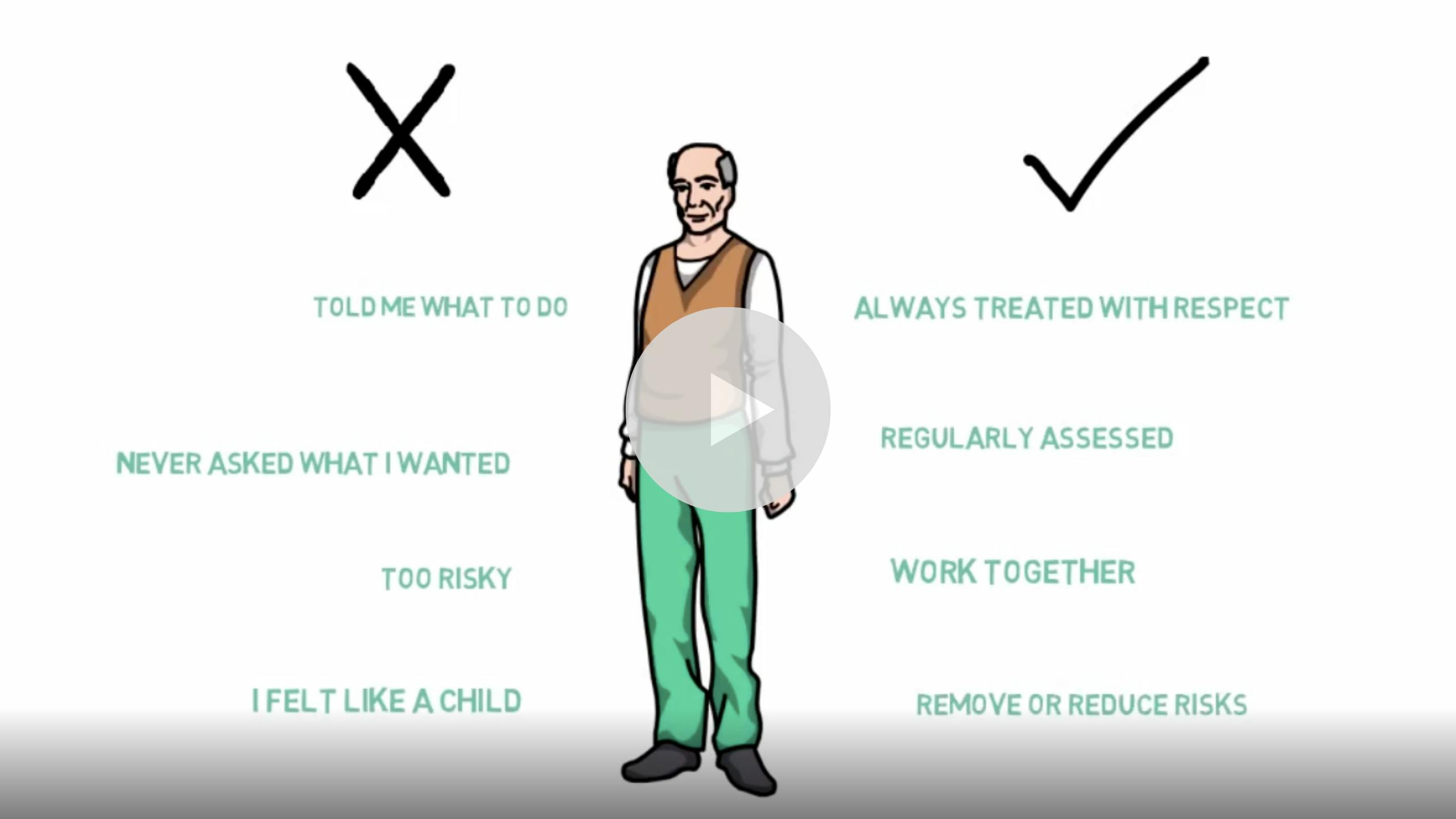
Tools to review your assessment and planning processes for the new ACQS

Part 2 of our Aged Care Quality Standards series
As of July 1st 2019, the new Aged Care Quality Standards will be in place across Australia. The standards will apply to all aged care services, including residential care, home care, flexible care and services under the Commonwealth Home Support Program. Now is the time to familiarise yourself with them.

In order to meet the standards, staff must be well-equipped and feel confident in delivering the best possible care. To support this, Go1 has partnered with Australian training provider Aged Care Learning Solutions to bring you all the online training courses you need to be ACQS compliant.
This article delves into Standard 2, which covers guidelines for ongoing assessment and planning with consumers. As set out in Standard 1, the consumer’s right to decision-making and choice is paramount, and should be at the centre of the planning and assessment process.
Why ongoing assessment and planning is key
When providing support for consumers in aged care, it is reasonable to assume that an individual’s needs could completely change from one day to the next. With this in mind, an ongoing assessment and planning process is crucial. A care plan which remains static for too long will very quickly become out of date, and fail to provide the appropriate support.
Many organisations providing aged care to consumers are also large and complex. This means communication between members of the workforce can be complicated. When care plans are personalised and reviewed regularly with the consumer, every member of the team involved in that particular individual’s care will have a roadmap to providing the safe and effective care that individual needs.
Where possible, the consumer should lead the assessment and planning process and get the support they need if they have other challenges including illness, disability or cognitive impairment. Individuals in your care will be far happier if they have agency over the care they receive. Helping the consumer to maintain independence is also necessary for meeting Standard 1 - the foundation of the eight standards.
Below is our checklist of questions for aged care providers to use and to generate conversation around the topic. The advice we share is to be implemented at the discretion of those responsible for the quality of aged care provision. Staff wishing to implement changes should do so in consultation with colleagues and line managers.
Checklist for effective assessment and planning with consumers
As an aged care provider, ensuring you have the correct assessment and planning systems in place can be a challenge. There are many different aspects to providing quality care, and some are difficult to measure. Yet, the vulnerable people in your care deserve attention to detail and a high-quality service.
Whether you already have a rigorous assessment and planning process in place, or your systems need an overhaul, this checklist will help you to review your service in time for July 1st:
1. Do your planning and assessment processes enable consumers and the team around them to work together?
As explained above, communication between consumers, their representatives, staff members and others is key. The consumer should lead all opportunities for assessment and planning, unless they have difficulty doing so for medical reasons. Where a consumer has difficulty communicating, it is important to provide as much support as possible for the consumer to make their wishes known.
It is also essential to listen carefully to consumers’ thoughts and feelings on how their care should progress. Although your members of staff will be well-trained and often highly experienced, the wishes of the consumer should lead the conversation.
If the organisation is unable to meet a consumer's expectations, this needs to be managed respectfully and the consumer should be informed about other service providers more able to effectively meet their needs.
2. Are you incorporating information from other sources in your assessment process, such as government assessment services?
Although assessment and planning processes within your organisation may already be rigorous, incorporating information from other sources, such as government services, is also useful.
Looking to organisations beyond your own organisation to support in-house assessment broadens the choice for the consumer and gives them access to a wider range of support. Assessment can be a complicated process, and additional services can offer guidance on how best to assess the needs of consumers in your care.
Equally, it is important to consider how these additional services will work alongside your own, and to manage their inclusion seamlessly.
3. Does your team use validated risk-assessment planning tools, with input from qualified practitioners?
Completing risk-assessments can be time-consuming, but they are necessary for keeping consumers in your care safe and comfortable. Of course, we want consumers to have as much freedom as possible, and so involving the consumer in the risk-assessment process can be helpful. For example, on a day trip, the consumer may be the best judge of what they can and can’t do safely.
The input from other medical or allied professionals is an important part of the assessment and planning process where it is appropriate and will be of benefit for the consumer.
4. How does your organisation know whether planning and assessment systems result in safe and effective care services?
It is also paramount to ensure your assessment systems translate well to the practical environment, and work for individual consumers.
One of the best ways to determine whether or not an assessment system is working is to ask consumers for feedback. Their responses will be your best guide as to whether the system functions, as their needs and wishes should be at the centre of the process.
This includes reviewing assessment systems on a regular basis, both with the input from consumers and the team around them. Assessment should be an ongoing process, and should inform planning.
On reflection, are there any changes you need to make to your assessment systems? For information and support with meeting the requirements for Standard 2, you can find more reflective questions on the Aged Care Quality and Safety Commission website.
If you have a Go1 Premium portal, log in to view the Aged Care Learning Solutions video guide to Standard 2. Here, you will also find learning resources related to Standard 2.
Topics include:
- Partnering to Plan and Deliver Care (including advanced care and end of life planning)
- Documentation, Collaboration and Communication





